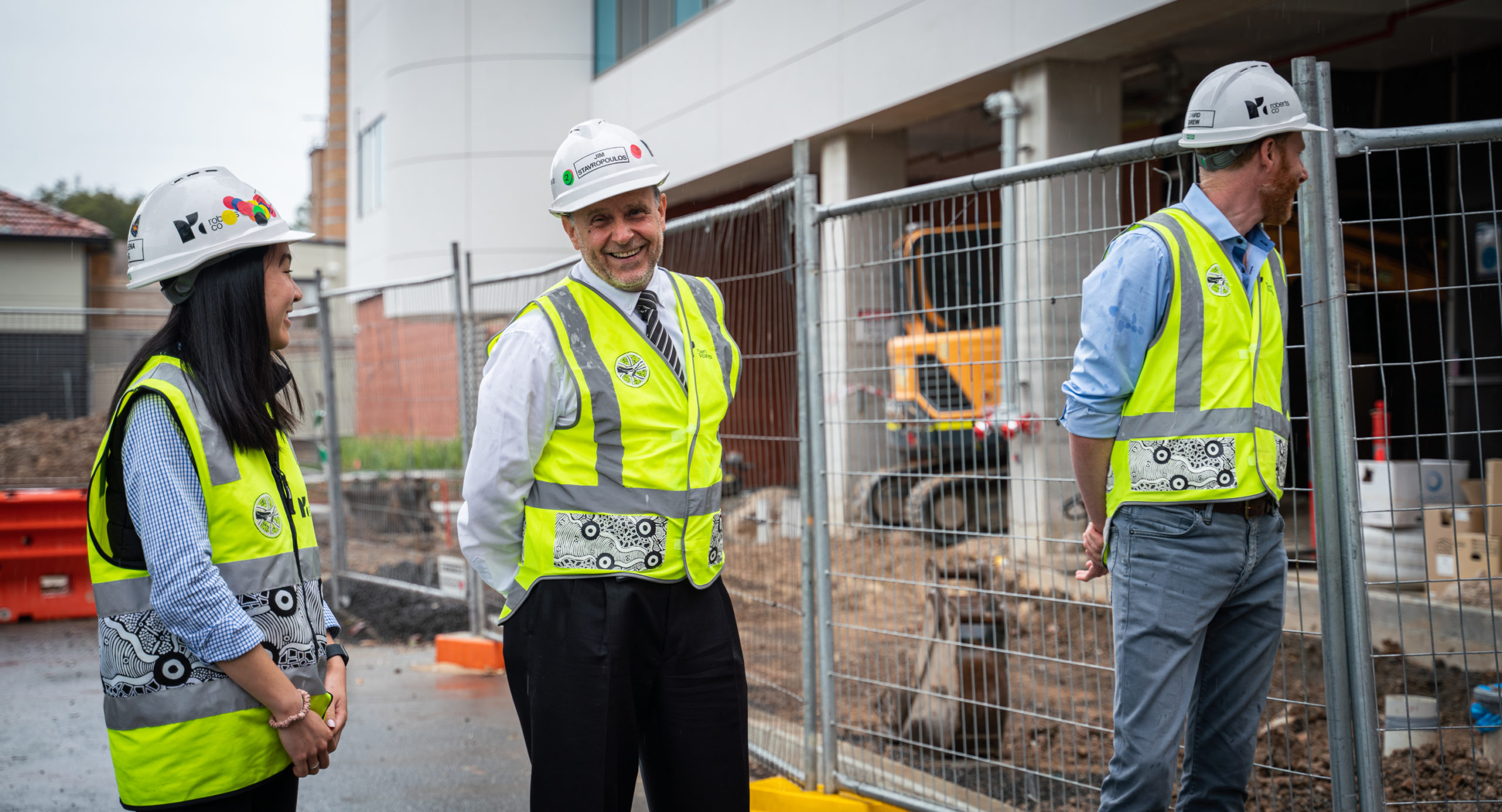


Roberts Co’s overarching goal is to Build a Better Way for the construction industry, including introducing more flexible working hours to an industry notorious for its six-day working week.
Recently, Roberts Co partnered with Health Infrastructure NSW to implement a five-day working week on the Concord Hospital Redevelopment and Liverpool Health and Academic Precinct projects. By only operating the site Monday to Friday, health and wellbeing improvements have been demonstrated for not only the workers, but also for their partners and their children. Workers are now able to spend their weekends with family and return refreshed on Monday mornings.
Roberts Co and the NSW Government jointly engaged UNSW to formally study the benefits of the five-day work week. Project 5 focuses on the mental health and wellbeing of site workers and their families. The UNSW research team consulted with a total of 253 workers, 16 next of kin and 12 project and industry stakeholders using surveys and interviews to develop a final research report, which will be released this November.
Project 5 tests the viability of a major and unprecedented shift for the construction industry – a five-day working week instead of the standard six or seven days per week. This change in culture and working patterns aims to address the serious but often hidden social and health issues caused by ever-increasing project demands. Roberts Co is one of the first construction companies willing to try this approach in a bid to improve the health and wellbeing of workers and their families, while not compromising on its cost and time commitments to clients.
Some stark statistics illustrate the human toll of the construction sector’s problems. Australian construction workers are six times more likely to die from suicide than from a workplace accident, and male construction workers are 53% more likely to die by suicide than other Australian men. The construction industry’s inflexible hours, high workloads, excessive travel times and lack of gender diversity are unsustainable. But while there is strong evidence that working conditions in the sector are harmful to workers’ health and wellbeing, there is little research being done into the effects of modifying these conditions, and no research as large as Project 5.
Subcontractors openly admitted to how unproductive they were on Saturdays, which are traditionally workdays for all construction workers and staff. Under Project 5, there is no work on weekends, and this required a re-think of construction planning. On the Concord Hospital site, the working day was extended by two hours to cater for overtime pay during the week, giving workers a two-day weekend to enjoy. Working a five-day week gives workers an additional six weeks of rest per year – or throughout a 40-year career, an extra five years with their families.
The supply chain responded positively to shifting to a five-day week – the cost increased by less than 1% of the total project cost to cover the additional 10 weeks of project duration.
After initial consultation with subcontractors and trade unions, the UNSW research team recruited workers and their next of kin via the Roberts Co Subbie App and through information sessions on site. These sessions outlined the harm existing construction work practices on the health and wellbeing of workers and emphasised the importance of this study.
Roberts Co, Health Infrastructure NSW and UNSW have spoken widely to industry and media about the importance of Project 5 to inform the construction sector and community as a whole about the need for change.